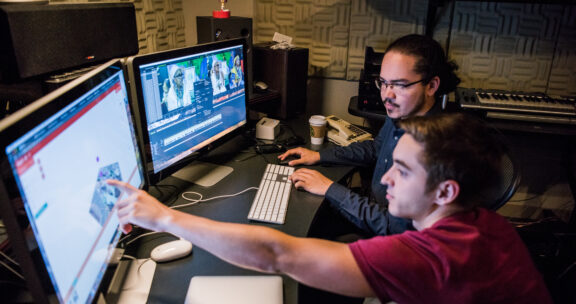
UMBC Interdisciplinary CoLab: Narrative-based Paid Internship
CoLab is a 4-week paid summer narrative-based research internship for UMBC undergraduates. Student interns will work on interdisciplinary project teams to conduct research, create effective narratives, and develop public-facing final products that support the goals of on and off campus community organizations and scholars. Open to all majors, this is an excellent opportunity for students in STEM fields to learn to tell effective stories and for students in social science and humanities fields to gain research and technical skills.
Participants receive a $3000 stipend and a tuition scholarship for a 3-credit internship course.
Program Dates
CoLab 2024 will be held during Summer Session One and meets in-person from Monday, June 3rd through Friday, June 28th. PLEASE NOTE: During these dates, student interns are required to dedicate Monday through Friday from 9:30 am – 4:00 pm to the in-person internship.
Summer 2024 Projects
1. Entering Tola’s Room: Archiving Puerto Rican Presence in Baltimore
Project Leader: Dr. María Célleri, Gender, Women’s, + Sexuality Studies
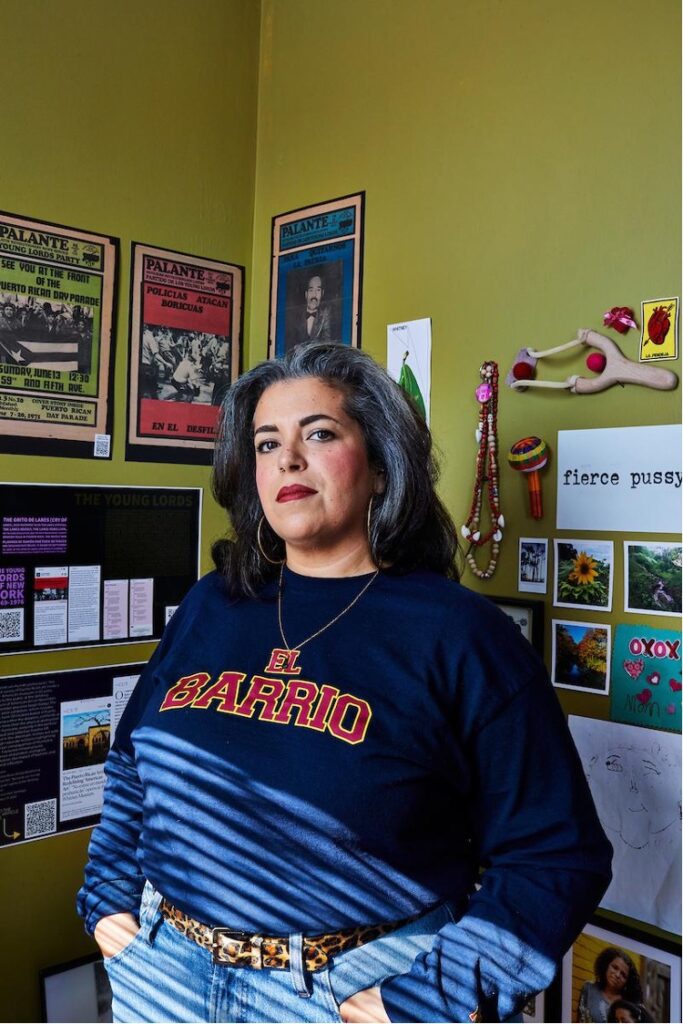
The interdisciplinary team of student researchers will work with Tola’s Room—a three-story immersive museum and cultural education center featuring art, home relics, and archives of the Puerto Rican diaspora in the city of Baltimore—and produce a tangible visual piece that the museum will use to increase their visibility in the community. While major hubs of the Puerto Rican diaspora, such as New York City and Miami, are well-known and researched, Baltimore’s growing Latinx population is increasingly Caribbean. Puerto Ricans are the 4th largest Latinx population in Baltimore City, and yet there seems to be little representation of their history and/or culture. Tola’s Room, founded by Christina Delgado, is Baltimore’s only permanent site of Puerto Rican history and contemporary diaspora in the city. The project team will work with Delgado and the rest of Tola’s Room’s team to create a booklet of the museum, in both physical and digital versions, using the archival material already curated by Tola’s Room in the museum-house. The project team will also compile their own research of Puerto Rican history in the Delaware, Maryland, Virginia (DMV) area for Tola’s Room use.
Recommended skills, abilities, and resources for applicants
Student members of the interdisciplinary team should share the following traits: intellectual curiosity, strong written and oral communication skills, leadership ability, solid research skills, and the ability to work both collaboratively and independently. At least one team member should have archival research knowledge; one member should have digital design knowledge; one member should have some experience with photography; and another should have some level of Spanish proficiency.
2. FindingBlackGirlhood: A Digital Archive
Project Leader: Courtney Cook, Gender, Women’s, + Sexuality Studies
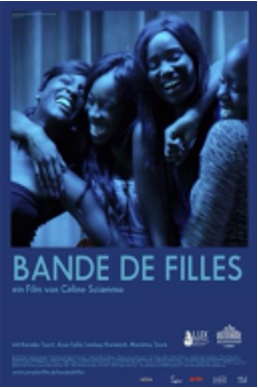
Film is an abundant site to exhume rich archival material on underrepresented demographics. Cinematic representations of Black girlhood give distinctive insight into Black girls lived experiences. Black girls in film are visualized representatives who, by simply existing on screen, create spaces for an innovative and expansive approach to archival research.
The interdisciplinary team of student researchers will collaborate on this research to develop a small-scale preliminary website that will be designed like an academic film streaming site, much like Kanopy. Entitled, FindingBlackGirhood: A Digital Archive, the project team will create and present a beta version of the site that will contribute to creating an innovative archive of freedom. The website will include an Introduction that considers the intersections of Black girlhood and film, film descriptions, and analytical essays on each film.
Recommended skills, abilities, and resources for applicants
Student members of the interdisciplinary team should share the following traits: intellectual curiosity, strong written and oral communication skills, solid research and production skills, and the ability to work both collaboratively and independently. At least one team member should also have experience with website design and/or HTML knowledge, and interests/experience in Black girlhood, Media/Cinema Studies, and/or Black Studies is preferred.
3. Ghosts in the Stacks: Exploring Spiritualism in the UMBC Special Collections Library
Project Leader: Dr. Lindsay DiCuirci, English
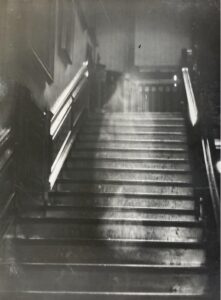 Fascination with spirit contact has always been an integral part of the human experience. Mediums and ministers, seers and scientists have long tried to capture evidence of the unexplainable in print media, photography, and audio recording. In this CoLab, an interdisciplinary team of student researchers will work with UMBC Special Collections and their recently acquired Eileen J. Garrett Parapsychology Foundation Collection to create a digital exhibition featuring some of their thousands of rare items. Ranging in date from the 16th century to the present, this collection is a rich, multimedia archive of parapsychological history covering subjects like mediumship, hauntings, out-of-body experiences, and precognition. The project team will research individual collection items, develop curatorial guidelines for organizing the exhibition, and build an informative and interactive website for use by experts and curiosity seekers alike. The exhibition will be permanently hosted on the UMBC Special Collections website, and team members will also share their work in a public Library Gallery forum in Fall 2024.
Fascination with spirit contact has always been an integral part of the human experience. Mediums and ministers, seers and scientists have long tried to capture evidence of the unexplainable in print media, photography, and audio recording. In this CoLab, an interdisciplinary team of student researchers will work with UMBC Special Collections and their recently acquired Eileen J. Garrett Parapsychology Foundation Collection to create a digital exhibition featuring some of their thousands of rare items. Ranging in date from the 16th century to the present, this collection is a rich, multimedia archive of parapsychological history covering subjects like mediumship, hauntings, out-of-body experiences, and precognition. The project team will research individual collection items, develop curatorial guidelines for organizing the exhibition, and build an informative and interactive website for use by experts and curiosity seekers alike. The exhibition will be permanently hosted on the UMBC Special Collections website, and team members will also share their work in a public Library Gallery forum in Fall 2024.
Recommended skills, abilities, and resources for applicants
Student members of the interdisciplinary team should share the following traits: intellectual curiosity, strong written and oral communication skills, leadership ability, solid research skills, and the ability to work both collaboratively and independently. Additionally, student members should hold an interest in rare books and archives. Familiarity with WordPress, web design, and Photoshop are especially welcome skills. Curiosity about paranormal subjects and materials, philosophy, mysticism and related subjects would also be an asset to the project.
4. The History of The Choice Program at UMBC, A Mentoring and Diversion Program
Project Leader: Dr. Kelly Quinn, The Shriver Center
 The interdisciplinary team of student researchers will document the history of The Choice Program at UMBC and distill key moments to be used in media campaigns for the organization. Since 1988, The Choice Program, housed in The Shriver Center, has worked with young people and their families throughout central Maryland, most of whom are involved with the Department of Juvenile Services. The CoLab project team will write a timeline of Choice and study the historical context of such topics as public responses to youth involvement with crime: punishment, diversion, and abolition. Based on this research, the team will use a story-based strategy for social change, one that dispels myths, promotes reform, and amplifies mentoring as an alternative to detention. The timeline will serve as the basis for at least three products: a digital story, a one page infographic, and a social media slide show. The organization will use these materials on the website for internal and external communication.
The interdisciplinary team of student researchers will document the history of The Choice Program at UMBC and distill key moments to be used in media campaigns for the organization. Since 1988, The Choice Program, housed in The Shriver Center, has worked with young people and their families throughout central Maryland, most of whom are involved with the Department of Juvenile Services. The CoLab project team will write a timeline of Choice and study the historical context of such topics as public responses to youth involvement with crime: punishment, diversion, and abolition. Based on this research, the team will use a story-based strategy for social change, one that dispels myths, promotes reform, and amplifies mentoring as an alternative to detention. The timeline will serve as the basis for at least three products: a digital story, a one page infographic, and a social media slide show. The organization will use these materials on the website for internal and external communication.
Recommended skills, abilities, and resources for applicants
The primary requirement is a demonstrated commitment to social justice and storytelling for social change. Student members of the interdisciplinary team should also share the following traits: intellectual curiosity, strong written and oral communication skills, leadership ability, solid research skills, and the ability to work both collaboratively and independently. At least one member of the team should be familiar with researching primary documents and secondary literature, and at least one team member should be familiar with graphic design and/or have a desire to learn software such as Canva. Additionally, team members should have an interest and ability to conduct in person and virtual interviews. Experience with video production and editing is not necessary, but preferred. Knowledge of and interest in Maryland’s public schools is helpful, but not required.
5. Picturing Mobility: Photographs of Black Tourism and Leisure during the Jim Crow Era
Project Leaders:
Dr. Liz Patton, Media and Communication Studies
Dr. Beth Saunders, Special Collections and Gallery, Albin O. Kuhn Library
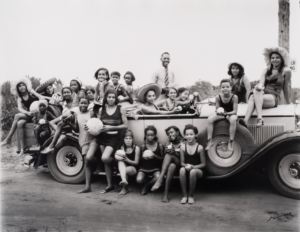 The interdisciplinary team of student researchers will participate in research and planning for a 2025 photography exhibition in the Albin O. Kuhn Library (AOK) Gallery on the subject of Black mobility and leisure during Jim Crow. They will create the exhibition website featuring locations relevant to Black mobility and leisure in the Delaware, Maryland, Virginia (DMV) area. The site will be used as a preview for the exhibition and will feature original essays and image descriptions authored by students. The project team will begin by exploring archival sources provided by the project leaders, materials housed in AOK Library and Morgan State University Special Collections, as well as the Burns Archive based in New York. The webpage will highlight local historical leisure spaces that will be featured in the exhibition. The project team will also visit the Burns Archive, a private photography collection in New York City, and will conduct original research on vintage snapshots related to African American leisure, helping to identify the people, locations, and key themes embedded in these images. Students’ research will contribute to the early development of the exhibition and will be featured on the exhibition website. Team members will learn to use WordPress for online publishing. They will receive training in archival literacy and safe handling of photographic materials.
The interdisciplinary team of student researchers will participate in research and planning for a 2025 photography exhibition in the Albin O. Kuhn Library (AOK) Gallery on the subject of Black mobility and leisure during Jim Crow. They will create the exhibition website featuring locations relevant to Black mobility and leisure in the Delaware, Maryland, Virginia (DMV) area. The site will be used as a preview for the exhibition and will feature original essays and image descriptions authored by students. The project team will begin by exploring archival sources provided by the project leaders, materials housed in AOK Library and Morgan State University Special Collections, as well as the Burns Archive based in New York. The webpage will highlight local historical leisure spaces that will be featured in the exhibition. The project team will also visit the Burns Archive, a private photography collection in New York City, and will conduct original research on vintage snapshots related to African American leisure, helping to identify the people, locations, and key themes embedded in these images. Students’ research will contribute to the early development of the exhibition and will be featured on the exhibition website. Team members will learn to use WordPress for online publishing. They will receive training in archival literacy and safe handling of photographic materials.
Recommended skills, abilities, and resources for applicants
Student members of the interdisciplinary team should share the following traits: intellectual curiosity, strong written and oral communication skills, leadership ability, the ability to work both collaboratively and independently, creativity, and solid research skills with interest in archival research, history, and museum studies. At least one team member should have website design and/or HTML knowledge.
6. Podcasting Baltimore’s LGBTQ+ Baltimore History
Project Leader: Dr. Kate Drabinski, Gender, Women’s, + Sexuality Studies
 The interdisciplinary team of student researchers will use the oral histories of UMBC’s LGBTQ+ oral history project, interviews, and archival resources to produce original research about Baltimore’s LGBTQ+ history. Based on this research, and building on previous work done by CoLab researchers in 2023, the team will produce several episodes of a podcast about these histories for Baltimore Heritage to be featured on their website. The project will help Baltimore Heritage expand their archive of knowledge about these often overlooked histories.
The interdisciplinary team of student researchers will use the oral histories of UMBC’s LGBTQ+ oral history project, interviews, and archival resources to produce original research about Baltimore’s LGBTQ+ history. Based on this research, and building on previous work done by CoLab researchers in 2023, the team will produce several episodes of a podcast about these histories for Baltimore Heritage to be featured on their website. The project will help Baltimore Heritage expand their archive of knowledge about these often overlooked histories.
Recommended skills, abilities, and resources for applicants
Student members of the interdisciplinary team should share the following traits: intellectual curiosity, openness to new ideas, a genuine interest in cities and the people who live in them, strong written and oral communication skills, solid research skills, the ability to work both collaboratively and independently, and a willingness to lead sections of the project. At least one member of the project team should have some experience in oral histories and/or digital storytelling. Team members will be trained to use Audacity for audio editing and other podcasting equipment. A background in sound editing, graphic design, or script writing would be very valuable.
7. The History and Impact of the UMBC Center for Women in Technology (CWIT)
Project Leader: Kristen Anchor, Media & Communication Studies
 The UMBC Center for Women in Technology (CWIT) is dedicated to enabling success for all women and other underrepresented groups in technology fields. CWIT supports UMBC’s College of Engineering and Information Technology (COEIT) students with a nurturing and challenging community, transformative leadership experiences, and professional development opportunities. The interdisciplinary team of student researchers will work together on a creative product (currently envisioned as a video, but we are open to other modalities) that describes CWIT’s history and impact in the context of gender representation in technical fields over the last 25 years. The product will be based on video, audio, and photographic resources currently available from CWIT that describe our history and impact on students and on the tech workforce, along with products resulting from the project team’s research on gender issues in tech. The team will draw from CWIT archives, which include videos, photographs, and Center records. This project is an outgrowth of CWIT’s 25th birthday in Fall 2023, and is part of the celebration of that milestone.
The UMBC Center for Women in Technology (CWIT) is dedicated to enabling success for all women and other underrepresented groups in technology fields. CWIT supports UMBC’s College of Engineering and Information Technology (COEIT) students with a nurturing and challenging community, transformative leadership experiences, and professional development opportunities. The interdisciplinary team of student researchers will work together on a creative product (currently envisioned as a video, but we are open to other modalities) that describes CWIT’s history and impact in the context of gender representation in technical fields over the last 25 years. The product will be based on video, audio, and photographic resources currently available from CWIT that describe our history and impact on students and on the tech workforce, along with products resulting from the project team’s research on gender issues in tech. The team will draw from CWIT archives, which include videos, photographs, and Center records. This project is an outgrowth of CWIT’s 25th birthday in Fall 2023, and is part of the celebration of that milestone.
Recommended skills, abilities, and resources for applicants
Student members of the interdisciplinary team should share the following traits: intellectual curiosity, strong written and oral communication skills, leadership ability, solid research skills, and the ability to work both collaboratively and independently. At least one team member should have experience with video editing and digital storytelling; and one team member should have an interest in, and familiarity with, gender issues. It would also be helpful if one team member represents the tech field.
Application requirements
- To apply, you must be a UMBC degree-seeking undergraduate student, have completed at least 30 credits at UMBC, and you must submit an unofficial UMBC transcript with your application. Transfer students who have completed at least one semester of coursework at UMBC and at least 30 total college credits may apply and include their transcript from their previous college or university.
- Your transcript must indicate that your UMBC cumulative grade point average is 3.20 or greater.
- The review committee will only consider applications that meet the minimum qualifications and requirements. However, selection for this internship is competitive; therefore, meeting the minimum qualifications does not guarantee your selection.
- You must complete the full application and answer all questions.
The Application is now open and closes at 8pm on Wednesday, March 27, 2024.
Want to see more CoLab? Have a look at what past students accomplished during their internships! See Past Projects.
Questions
Please contact Dr. Rachel Carter at rachc1@umbc.edu.
The UMBC Interdisciplinary CoLab program is a partnership between The Office of Summer, Winter & Special Programs; the Dresher Center for the Humanities; and the Provost’s Interdisciplinary Activities Advisory Committee.